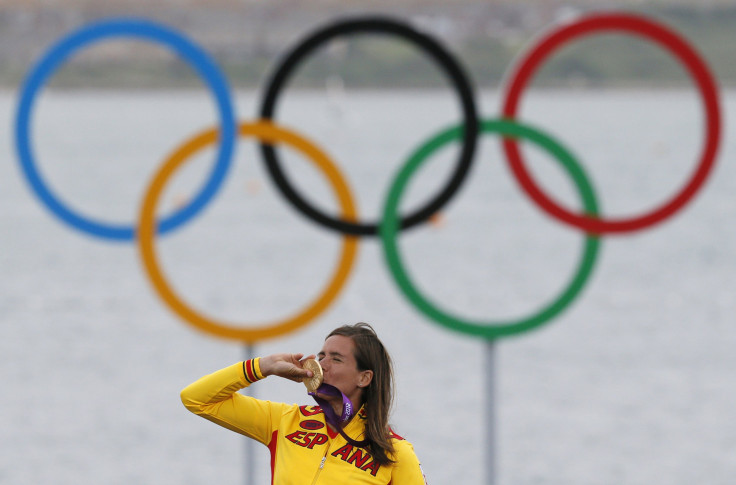Spanish Olympian, Marina Alabau, Says She Contracted Zika While Training In Brazil Recently

Olympic athletes from all over the world have expressed apprehension in regards to the upcoming games in Brazil. The Zika virus, which was linked to two miscarriages earlier this week, has forced athletes to rethink their dreams of winning a gold medal. Earlier this month, two-time Olympic gold-medal winning goalie for the United States Women’s Soccer Team, Hope Solo, announced that she would reconsider her decision to compete in the 2016 Summer Olympics.
Now, Spanish windsurfer, Marina Alabau, who won a gold medal at the 2012 Summer Olympics in London, believes she contracted Zika while training in Rio de Janeiro this past December. However, 30-year-old Alabau also said that her diagnosis would not deter her from competing this August and urged her fellow Olympians to be less worried over the mosquito-borne illness.
“There is too much alarm surrounding this. I had the virus and it wasn't that bad. I didn't even go to the hospital," Alabau told the Associated Press.
Zika has been a particular concern for females traveling to Brazil. Health experts have tied Zika to microcephaly, a rare birth defect that results in abnormal cranial and cognitive developments in newborns. While only around 20 percent of Zika patients show symptoms of the disease, Alabau said she came down with a fever that passed within 24 hours, but was followed by a series of other symptoms.
"Then my whole body turned red and everything itched. Two days later, my joints started aching," she added. "First it was in the fingers, then my wrists and finally my ankles. It was then that I decided to return to Spain because I was a little worried."
In spite of Alabau being nonchalant over her potential Zika diagnosis, travelers to South American countries are advised to be wary of mosquito bites and even avoid travel all together if possible. The Centers for Disease Control and Prevention posted travel warnings for anyone looking to visit South America. The World Health Organization also deemed the situation an “international health emergency.”
Solo and other female Olympic athletes said they would rescind their invitation to the Olympic Games this year to avoid even “the risk of having an unhealthy child.” Although women should be especially cautious, experts agree that women who contract Zika can still give birth to a healthy infant as long as they are cured of the illness and allow one month to pass before conceiving.
Alabau was diagnosed by Spanish windsurfing federation physician Dr. Carmen Vaz, who said she made the discovery based on the athlete’s symptoms and not any blood work. Vaz explained that tests for Zika were not available at the time and the panic surrounding Zika was not yet at fever pitch. Similar mosquito-borne illnesses, such as chikungunya or dengue fever, have not been ruled out just yet. Alabau said she will have official testing done when she returns to Spain in March.
Published by Medicaldaily.com



























